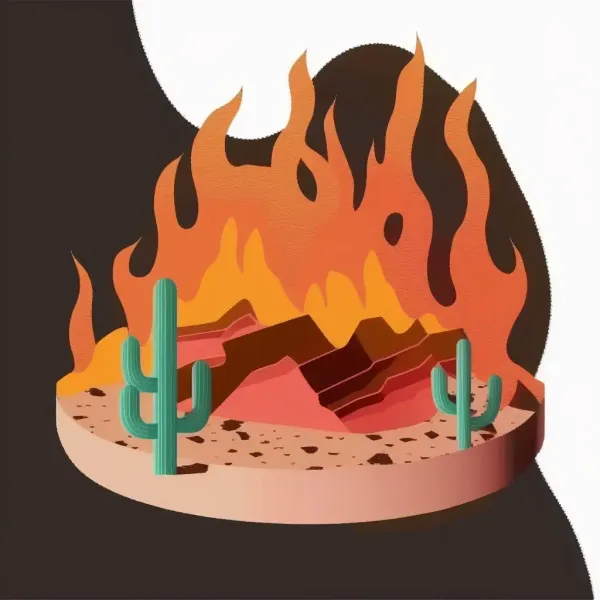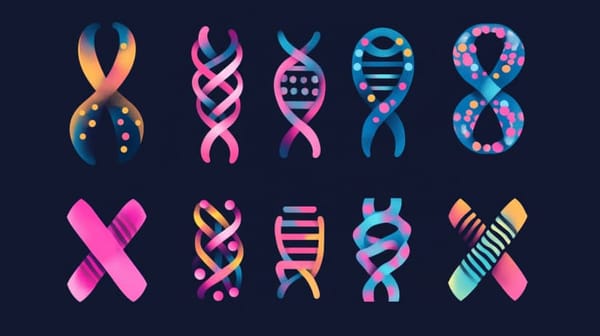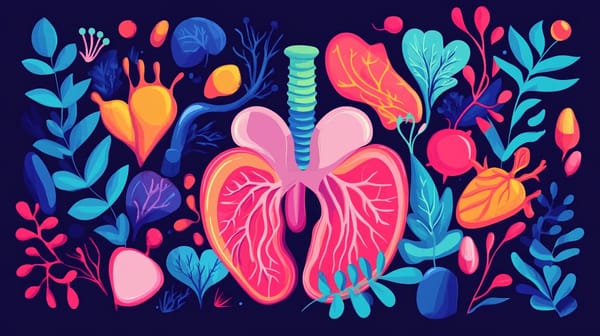One of my friends that were trying dry fasting for the first time, messaged me recently and asked:
“I’m on day 3 of my dry fast and I am incredibly weak and feel like crap. Didn’t you mention that once you get through the first two days, I should start to feel much better? Why does it feel like I’m getting a fever while dry fasting, and my skin is getting these weird small red pimples? Is it normal for me to feel like I’m getting sick while on the dry fast?”
Why do I have a fever during my dry fast?
It is quite common to see people saying that you start to feel much better and even ‘euphoric’ when you break through into ketosis.
However, this does not account for everyone’s experiences. Everyone who is undergoing dry fasting is different. People all enter the world of dry fasting at different stages. Some people are sicker, some people have different genetics, and some people have different diets. These are only some of the differences that may affect outcomes.
When I first started water fasting, I had the ‘keto flu’ more often than I’d like to admit. Coming off of the SAD (standard American diet) really made my transition quite painful. If you’re transitioning from a lifetime of unhealthy eating, you should expect quite drastic responses from your body.
Heat and Dry Fasting
Dry fasting is also commonly referred to as a ‘hot’ fast. As opposed to a water fast which is referred to as a ‘cold’ fast. If you’ve ever experienced either one, you can agree that during a water fast you’ll feel cool, while during a dry fast, you’ll feel warm.

This warmth can also be mistaken for a fever. The warmth is also explained to be a product of cellular thermal reactions. The idea stems from the fact that your body is lacking in water during a dry fast.
Therefore it must begin some sort of garbage collection. But without water, it’s impossible to efficiently flush the waste away. So what does the body do? It turns each and every one of your tiny little cells into mini thermal reactors. Hence, the heat flashes. Interesting isn’t it?
Why am I so hot when dry fasting?
When you dry fast, your metabolism increases significantly, and your blood becomes more viscous and thus better able to hold heat. Your body temperature will be higher. Your body is ripping apart fat cells at a quicker pace to get to the stored endogenous water. This means you will be warmer than if you were in a low-water state. Water fasting can leave people very diluted, with thinner blood, which is why they often feel cold.
Fat cells have 9 calories per gram while protein has 4 calories per gram. During a dry fast water must be produced to help replete the body's water storage. This forces the faster metabolism of fat, which produces water.
This was proven through a study on zebra finches and metabolic water. Because the body needs to maintain its water balance, it rips an exaggerated amount of fat in the process. This has a threefold reaction. One, it produces an excess of ketone energy which allows you to get superhuman levels of mental clarity. Two, it provides unparalleled fat loss in a short amount of time. And three, it releases an excess of caloric energy as heat.
Yes, they ARE fluid balance related; fat oxidation is immensely accelerated (>3× in the animal study below) in order to meet hydration needs via metabolic water.https://t.co/Z7YCPoXioh pic.twitter.com/WiG67W2fbp
— L. Amber O'Hearn (@KetoCarnivore) April 15, 2023
Fever and the Acidotic Crisis
From personal experience, I believe that feverish symptoms are quite normal. Fever symptoms indicate that you are entering the acidosis crisis, a term coined by Russian Dr. Filonov.
This acidosis crisis puts your body into an acidic state and it is supposed to drive your autophagy and other healing mechanisms into overdrive. If you believe in the acidosis crisis hypothesis, then this is the exact time when NOT to break your dry fast. It’s important to power through this phase.
Of course, it’s always important to listen to your body. Your body gains resilience and adapts to fasting the more you do it, so don’t feel defeated if you decide to break your fast. Re-group and restart when you are feeling ready for it again.

Third day into dry fasting I got a 100.5 fever. I was feeling miserable all day, broke my fast with some fluids, tofu & veggies and took the medicine. Day 1&2 were actually not bad.
That’s usually about when the fever kicks in! Not unusual at all. When you get to day 4 it subsides. When you make it through to the other side of the fever, you reach a great point where there are so many benefits from the healing.
Should you dry fast if you are sick with the flu?
The views on this are all over the place. Some people claim that dry fasting was the main driver in why they beat a sickness, while others claim that it is dangerous. Studies point to fasting being very beneficial when dealing with bacterial infections, but not good for viral infections. A recent article in healthline explains some potential mechanisms that help with the Flu or Common cold but still ends on ‘further studies need to be done’.
When you are sick, the body is supposed to be in a fasted state to focus it energy on healing the body. Humans shouldn’t even be eating as much as they say we should be eating in the first place. Also weak cells die while the strong cells survive when you fast. Think about it, when you are sick you don’t really have a desire to eat. That’s your body telling you to not eat so it can do it’s duty.
If you don’t feel sick, but the high-temperature fever-like symptoms are getting the best of you. I highly recommend trying to transition into a soft dry fast and take a very cold shower. Read more about the differences between soft dry fasts and hard dry fasts here. Good luck, and happy fasting!




